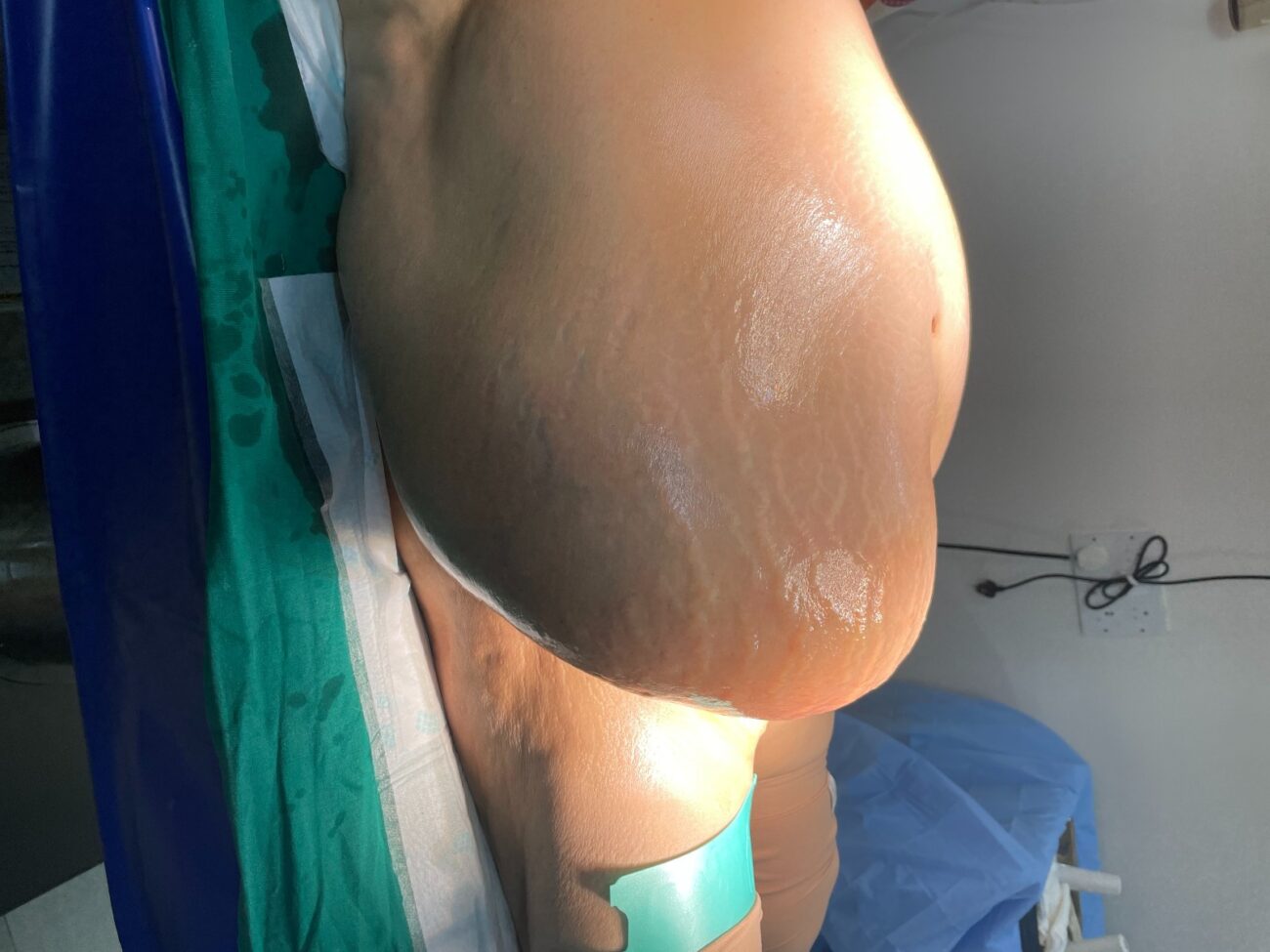Successful Treatment of 63-Year-Old with Giant Incisional Hernia and Complicated Medical History at Ramakrishna Hospital
Overcoming the Challenges, a Surgical Triumph in Managing Complex 10-year-old Incisional Hernia and Comorbid Conditions at Bangalore A hernia is a medical condition where a portion of an organ, typically the intestine, is displaced and protrudes

Overcoming the Challenges, a Surgical Triumph in Managing Complex 10-year-old Incisional Hernia and Comorbid Conditions at Bangalore
A hernia is a medical condition where a portion of an organ, typically the intestine, is displaced and protrudes through a weakened area in the abdominal wall. This protrusion can lead to discomfort, pain, and possible complications if not addressed soon.
A 63-year-old female with a complicated medical history, encompassing obesity, long-standing asthma, hypertension, and diabetes mellitus, presented with symptoms of pain, vomiting, and bowel dysfunction persisting for two days. Due to the severity of her condition, she was admitted to Ramakrishna Hospital in Bengaluru for immediate care.
Upon conducting a CT scan, Dr. Rajeev Premnath, the General Laparoscopic Surgeon and Endoscopist, discovered that the patient had experienced a significant reduction in abdominal space (loss of domain), with the hernia occupying approximately 40% of the remaining abdominal cavity. Furthermore, signs of intestinal obstruction were identified, as evidenced by dilated small bowel loops. The hernial orifice was notably large, measuring over 10 cm. Remarkably, the patient had been aware of the presence of a sizable incisional hernia for nearly a decade, noting its progressive enlargement over time.
Dr. Premnath explained, “An incisional hernia is characterized by the displacement of part of an organ through a weak point in the abdominal wall, often involving the intestine, at the site of a previous surgery. When the hernial defect exceeds 10 centimeters, it is termed a giant or massive hernia. As these hernias enlarge, other organs may protrude as well, leading to a decrease in the abdominal cavity’s size and a condition known as ‘loss of domain’.”
He added, “Loss of domain presents challenges to surgeons due to the associated respiratory distress caused by pressure on the lungs. To address this, various techniques are employed, including respiratory physiotherapy, progressive pneumoperitoneum, and specialized surgical approaches. Progressive pneumoperitoneum involves gradually expanding the abdominal cavity by introducing air or carbon dioxide, facilitating the reduction of hernial contents. However, achieving the desired volume may take several weeks, depending on the hernia and abdominal cavity volumes.”
Given the complexity and risks involved, a multidisciplinary team opted for surgical intervention following discussions with the patient and her family.
Dr. Premnath stated, “The surgical approach included an open abdominal procedure, incorporating hernia repair with mesh placement alongside abdominoplasty to address excess skin. To mitigate risks linked to general anesthesia, the surgery was conducted under spinal and epidural anesthesia.”
Following the surgery, the patient received intensive care in the ICU, where she underwent close monitoring. Several interventions were employed, including non-invasive ventilation to manage respiratory distress resulting from the diminished abdominal space. Additionally, physiotherapy was administered to enhance respiratory function and mitigate potential complications such as atelectasis. The ICU team also diligently managed her underlying medical conditions, including diabetes, hypertension, and asthma.
The patient showed a positive response to both the surgical procedure and postoperative care. Following a two-week hospitalization, she regained mobility independence and was discharged in satisfactory condition.
The patient expressed her gratitude, stating, “I am thankful for the care and attention provided by the doctor and the team during my hospital stay. The surgery and postoperative care greatly contributed to my improved mobility, and I am satisfied with the outcome.”






